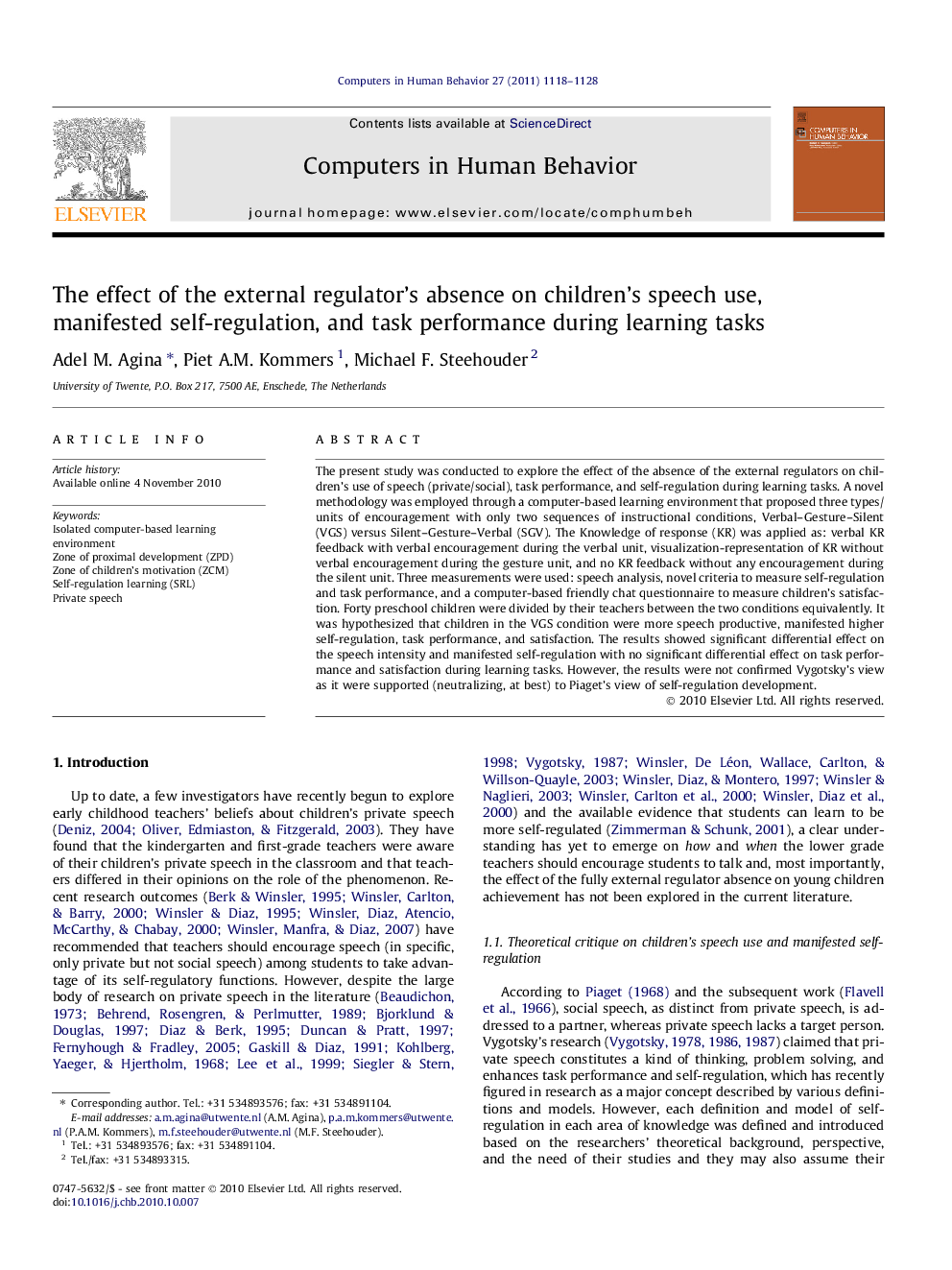| Article ID | Journal | Published Year | Pages | File Type |
|---|---|---|---|---|
| 351719 | Computers in Human Behavior | 2011 | 11 Pages |
The present study was conducted to explore the effect of the absence of the external regulators on children’s use of speech (private/social), task performance, and self-regulation during learning tasks. A novel methodology was employed through a computer-based learning environment that proposed three types/units of encouragement with only two sequences of instructional conditions, Verbal–Gesture–Silent (VGS) versus Silent–Gesture–Verbal (SGV). The Knowledge of response (KR) was applied as: verbal KR feedback with verbal encouragement during the verbal unit, visualization-representation of KR without verbal encouragement during the gesture unit, and no KR feedback without any encouragement during the silent unit. Three measurements were used: speech analysis, novel criteria to measure self-regulation and task performance, and a computer-based friendly chat questionnaire to measure children’s satisfaction. Forty preschool children were divided by their teachers between the two conditions equivalently. It was hypothesized that children in the VGS condition were more speech productive, manifested higher self-regulation, task performance, and satisfaction. The results showed significant differential effect on the speech intensity and manifested self-regulation with no significant differential effect on task performance and satisfaction during learning tasks. However, the results were not confirmed Vygotsky’s view as it were supported (neutralizing, at best) to Piaget’s view of self-regulation development.
